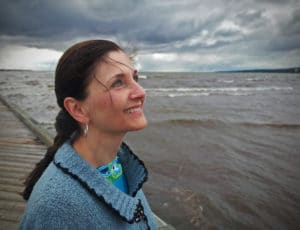 Can you hear me in the darkness?
Can you hear me in the darkness?
When did you last listen to the radio? I listened last night, as I drove from southern Ontario to northern Ontario. Four hours in the dark, alone. I lost my father recently, and could feel him all around his things being transported now in the car with me.
The voices on the radio kept me company. Soon I didn’t feel alone.
The first draft of Dying Hour emerged during a 73-hour novel marathon. Much of that writing happened in the dark. As a college professor in a media program, I was aware of how technology, brilliant as it is, meant that many media professionals were now working alone, engaging with laptops instead of with people.
That technology brought isolation, and also connection. While we may work alone at all hours of the day and night, our lives do not sleep. Loves and losses leap out of nowhere, make it hard to sleep, make us lonely. Our loves sometimes get reduced to a few precious trinkets from a life fully lived.
So what do people do when there are no things to touch and hold? No people with eyes to look into (or away from)? Can we connect when we are only voices in the dark on a fading late night radio show?
And how do those tensions ramp up when one of those voices is a troubled nine-year old child who may be in danger?
I have been a lost parent and a lost child too. Are there answers in dark places filled with so many questions? Can something useful come out of the nothingness of our selves alone in darkness?
I say: Yes. Voices are enough. We talk. We share. And before we know it, something unexpected happens. We find each other and ourselves.
Jennifer Rouse Barbeau’s book Dying Hour is a finalist in the Whistler Independent Book Awards. She will be appearing at the Opening Night Showcase Thursday Oct. 15 at 5 p.m. PDT.
